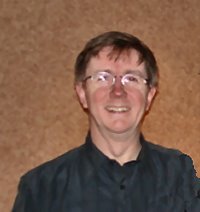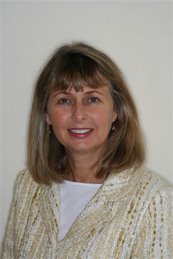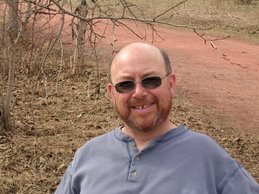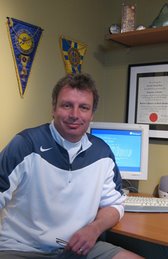 Well, the pencils are sharpened and the project is underway. I'm pleased to announce that we are now well underway with interviews of both medical personnel and patients. And man have I learned a lot! It is astounding to hear the stories, from both sides of the fence, of these people who wake up one morning and their lives are changed.
Well, the pencils are sharpened and the project is underway. I'm pleased to announce that we are now well underway with interviews of both medical personnel and patients. And man have I learned a lot! It is astounding to hear the stories, from both sides of the fence, of these people who wake up one morning and their lives are changed.Arlene Cox, a psychologist at the CPC, said "Imagine one morning you woke up with the worst pain you have ever had, and then imagine it never goes away." Doesn't that make you think? We think that pain is finite. That we injure oruselves or get sick, that we suffer pain, and then it goes away and life returns to normal. But what if it didn't go away? How would you get out of bed in the morning, day after day after day? And to top it off what if no one believed you?
So, when I ask the medical people I'm interviewing what they admire about this patient population, do you know what they say? Their courage and their strength.
Or what about a patient going through yet another medical exam, ten years later, because her insurance company still wants her to go back to work, even though all her doctors have said no? What about the patient whose coworkers say things like "well I had a headache yesterday but I came to work" or "you must have a low pain threshold"?
When I ask the patients what the one message is that they would like to see the play deliver, do you know what they say? Believe me.
Not cure me, or help me, or treat me or prescribe for me. Believe me.
Just imagine.
I have already laughed and cried over these stories, and I've barely scratched the surface. I just hope I can do these stories justice as we start writing the play. Hopefully, with the input of our great advisory committee, we can get there.
So - do you have a great pain slogan? (like instead of no pain, no gain; how about "no pain is the gain"). If so, put it in the comments. We're looking for some catchy ones.
Deb







1 comment:
I am pleased to see that you are speaking to sufferers to get their voices heard about this horrific condition. I wrote my own story of living with chronic pain and had it published in the Journal of Social Work in Disability and Rehabilitation, One Woman's Story of Living with Chronic Pain: The Proclamation of Voice by Judy E. MacDonald (2004). It was difficult to put the feeling on paper but in the end I hope it reaches other sufferers and validates their struggle. Health professionals need to put pain sufferers at the center of the treatment process - don't make us feel you disbelieve our pain stories, or that you psychologize our very struggle - listen to our word, step into our worlds - if only for a moment - so that understanding and empathy can meet us as we journey through the health care system.
I'll look forward to seeing your final product - all the best. judy
Post a Comment